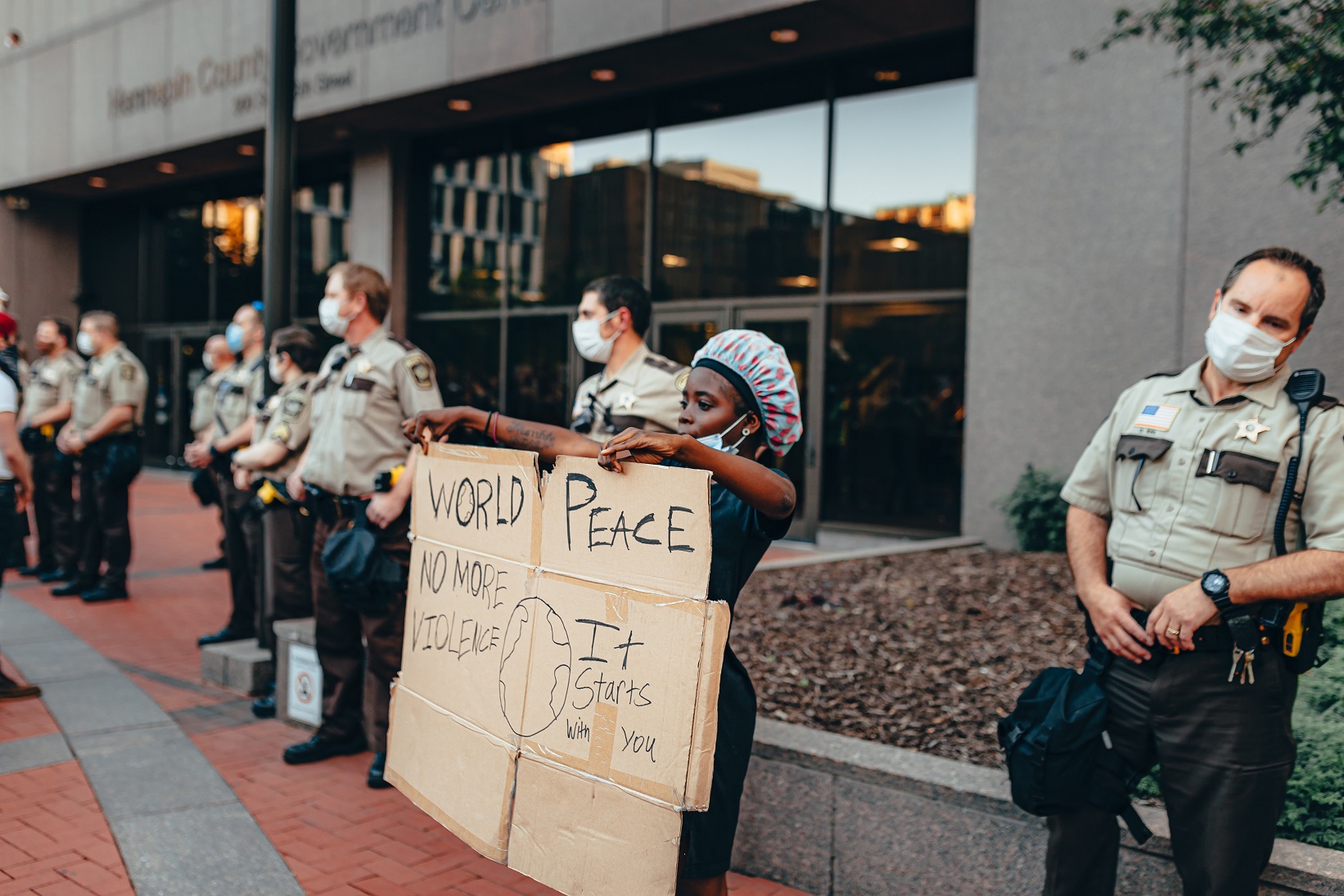After George Floyd’s murder at the hands of Minneapolis PD, calls around the world grew to ‘abolish’ or ‘defund’ the police.
But there’s still precious little evidence about what defunding means in practice—giving fuel to those who stress that changing police budgets would only put more people’s lives at risk.
Alexandria, a small town in the state of Kentucky, has provided such evidence.
Faced with a budget and social crisis, the local police department decided not to hire extra police officers—and to hire social workers instead.
First police social worker
As reported in Wave3, then-police chief Mike Ward fought off internal opposition to hire a social worker, whose influence has led to a drop in workload and in local prison time.
The chosen person was Kelly Pompilio, the first police social worker in the state.
“I’m more the second responder, so the officer responds first,” she told Wave3. “There are times that I do go on scene with the officer but that’s only after it’s secured and safe for me to enter.
“But I try to assist the family in whatever services they need so they don’t have to, whenever they’re having a crisis, or having a situation where they need law enforcement, they don’t have to call 911.”
The calls vary, but focus on domestic violence, mental health and substance abuse.
While there have long been connections between the police and social services, the difference here is how central social work is to everyday police activity. Pompilio is an integral part of the department, working side by side with officers, rather than as part of an agency that simply receives relevant calls.
Ward told Wave3 News there has been a “significant drop” in repeat 911 calls and around “$50,000” in annual savings, based on hiring an officer to hiring a social worker.
“They (police social workers) started solving problems for people in our community and for our agency that we’ve never been able to solve before,” Ward told the site.
Support for the defund movement
This outcome is exactly what defund-the-police activists have been calling for. In 2017, a collection of researchers and activists in Minneapolis produced a vision of a police-free future, demanding funds be reallocated away from “paramilitary interventions” and towards front-line mental health, education and domestic violence workers.
In other words, they said officers should focus on dangerous crimes, while social workers should take over non-violent calls. Those who respond to crises in the community would become the people best-equipped to do so, rather than “strangers armed with guns, who very likely do not live in the neighbourhoods they’re patrolling.”
“Dismantling the police will require reallocating their budget and assets to support real solutions to community desperation: good, well-paying jobs, affordable housing, healthy food, empowering education, accessible health care, removal of toxins,” the MPD150 group writes.
“Far from being a naive concept, police abolition is the only viable option for ending the systematic and unrelenting abuse of our communities.”
Expanding the model
Back in Alexandria, Ward continued singing the praises of the renewed hiring policy. He claimed that taking on the social workers—after Pompilio’s appointment, another social worker was hired—15 percent fewer people ended up in jail.
The chief also believes that the model could be used in larger cities, like Louisville (population 600,000), in which calls about homelessness, domestic disturbances and mental health in the city come “an average of once every 10 minutes.”
When asked whether more social workers would mean fewer police officers, he told Wave that “it could”—provided the balance was struck to ensure that there were enough officers to respond to serious crimes.




